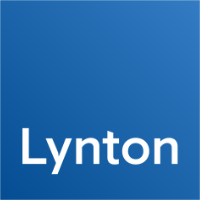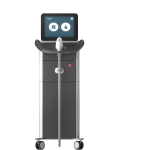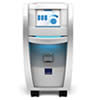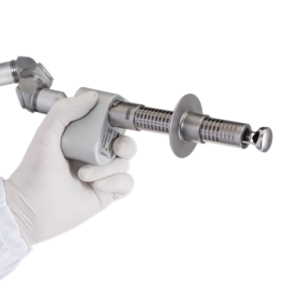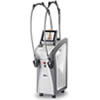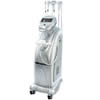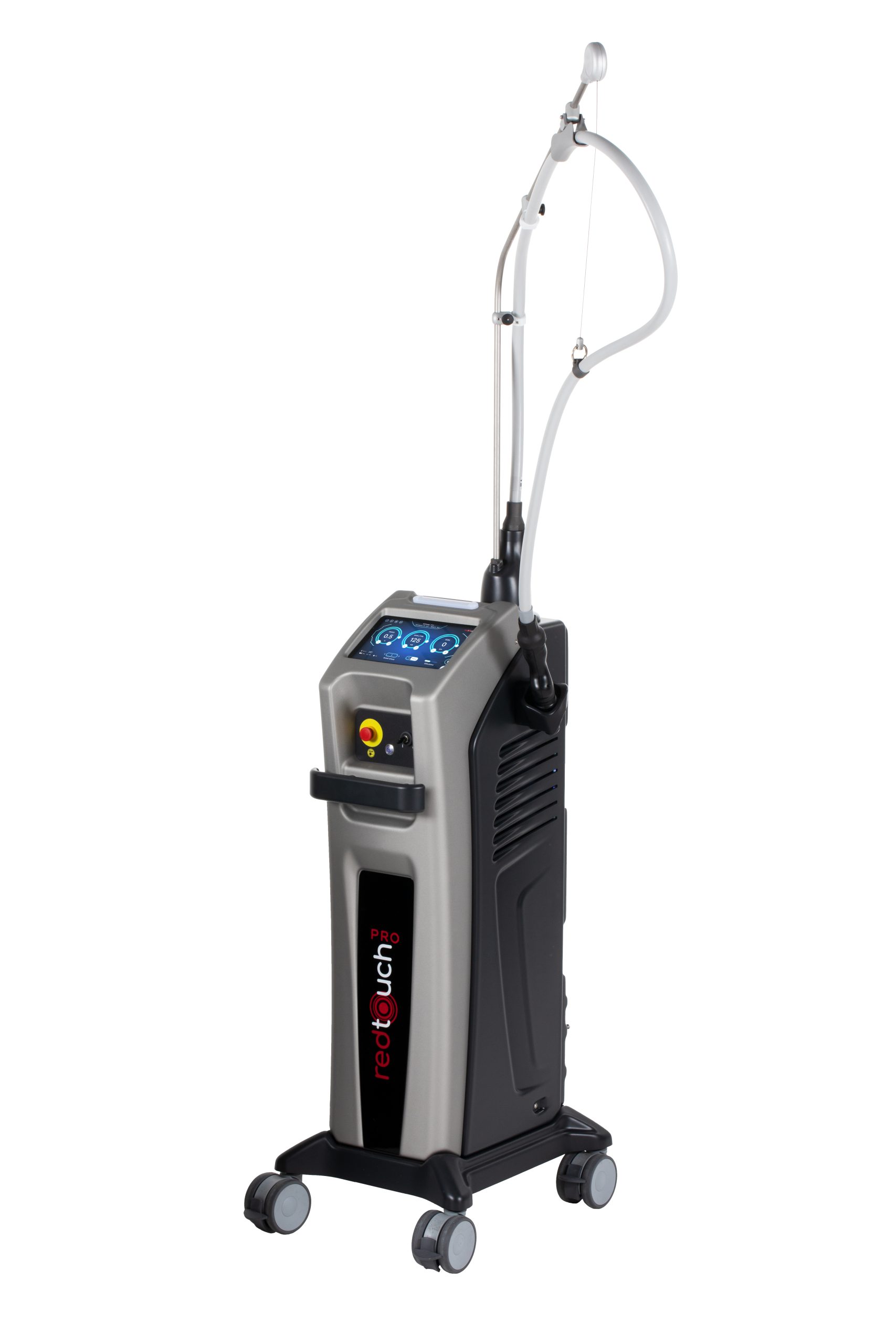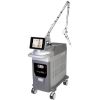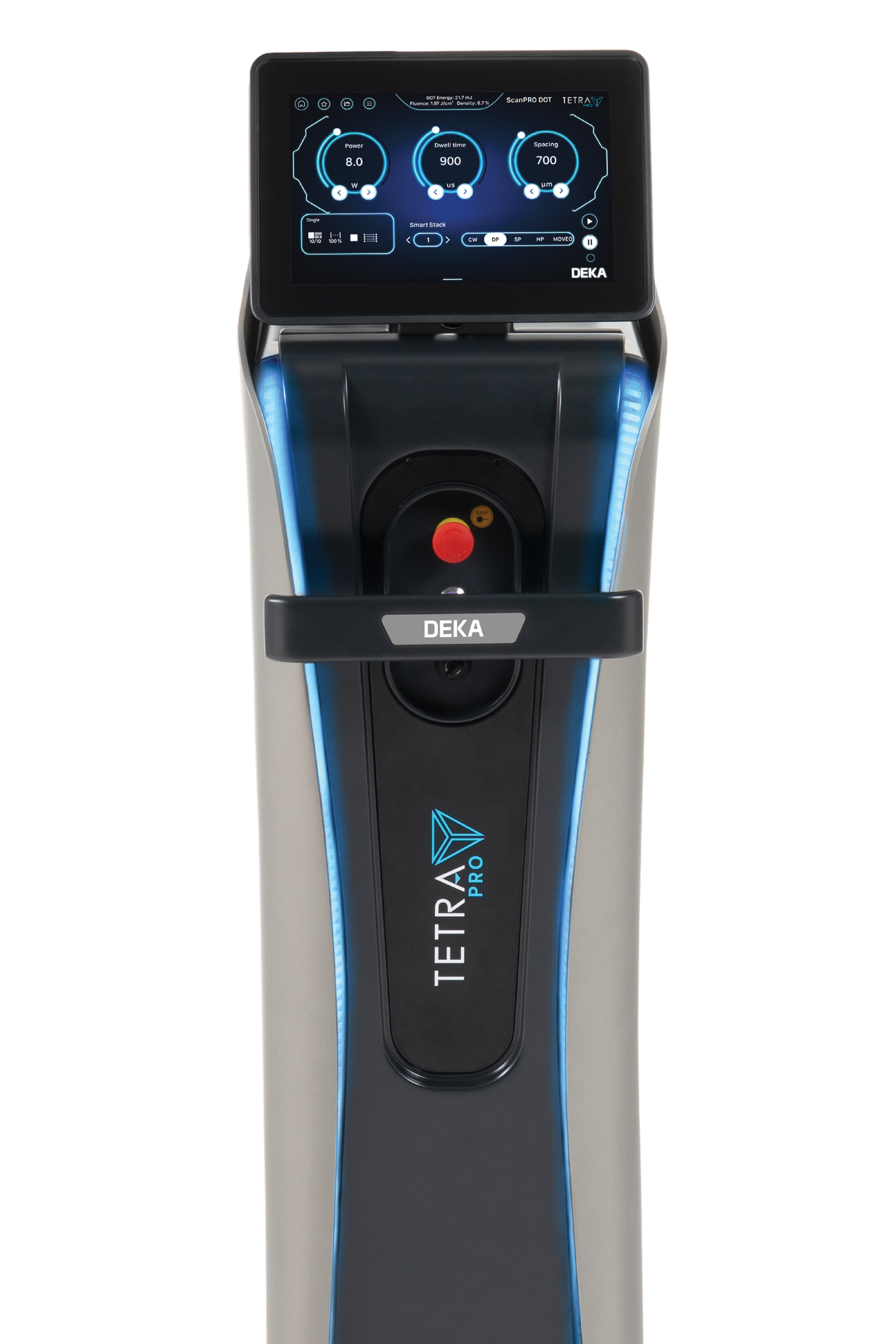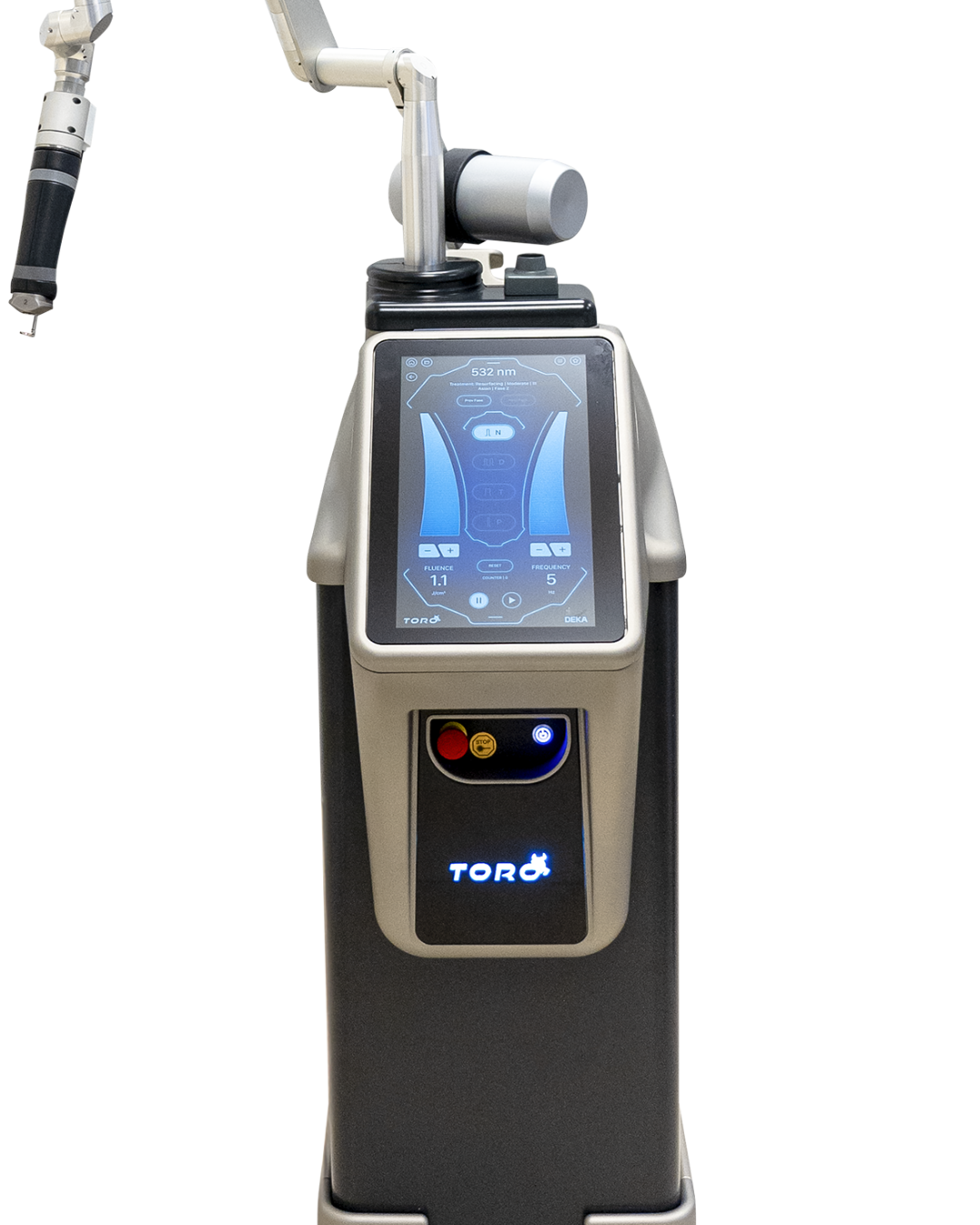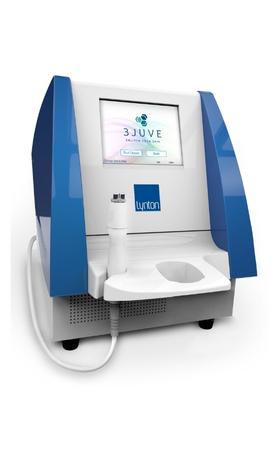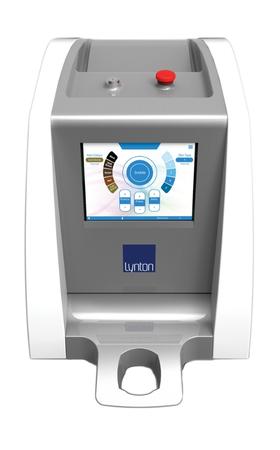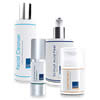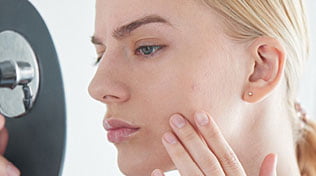
Expert Adult Acne Advice from Dr Sam Hills: How to Get Rid of Spots
Although the causes of adult acne are unknown, it is thought that they may have hormonal roots, and can be affected further by vitamin deficiency, diet and stress. Most people have such busy lifestyles that they don’t have time to think about what they are eating or whether they are exercising enough.
How Can Acne Be Treated? 
It has been shown that the major bacterial cause of acne, Propionibacterium Acnes, can be destroyed by the application of light. Blue light (wavelength~400nm) is most efficient at destroying the bacteria in vitro, however, at these short wavelengths, skin penetration depths are limited, making it difficult for the light to penetrate the skin sufficiently to target bacteria in deep blocked pores. Recent studies indicate that yellow light (~585nm) is as effective at targeting the bacteria that causes acne.
In addition, infrared wavelengths (greater than ~750nm) can penetrate more deeply into the skin and can cause heating of the overactive sebaceous glands and reduce sebum output. It is thought that reversible thermal damage to sebaceous glands can result in long term remission from acne. The gentle heating of the skin promotes fibroblast activity and stimulates collagen which may help improve mild acne scarring and accelerate the healing process.
Broadband light sources such as the LUMINA are the only systems that can offer shorter wavelengths for optimum surface bacterial destruction, whilst also getting to the deep-seated bacteria existing in pustules and papules and targeting the sebaceous glands themselves. The treatment is suitable for most clients with skin type 1-4 although rodent treatment with Roaccutane is a contraindication.
What Other Options Are There for Treating Acne?
Other courses of action such as medication are also very common in helping to treat acne however this can be dependent on many factors including age, sex and extent or severity of the acne. The response can sometimes be slow with acne medication and side effects such as dry or fragile skin, joint pains and links to increased suicide risks are quite common. IPL systems allow the treatment of acne to be administered quickly, easily and relatively painlessly with no serious side effects and therefore give an overall more enjoyable experience to the client.
As previously mentioned diet and lifestyle can have a huge impact on the severity of acne in adults. Eating well, exercising regularly and trying to reduce any unnecessary stress in day to day life will all help. You should also try not to scratch or squeeze spots in between treatments to avoid permanent scarring.
Who Can Undergo Acne Treatments Using IPL?
Clients who are pregnant or have any photosensitizing conditions are contraindicated to treatments and the use of Roaccutane and minocycline mean that you are not suitable for treatment also. Clients would need to have been off Roaccutane for at least 6 months and minocycline for four weeks.
Are There Any Daily Regimes I Can Follow To Help With My Acne?
Clients should use a face wash daily and avoid oily products on the skin. A mild chemical peel combined with light-based treatments can also help, as the peel exfoliates the dead skin cells that together with the sebum, block the pores, and also help the light penetrate the skin.
To find a clinic near you offering acne treatments please visit the Lynton clinic finder.
Search for a Lynton Clinic Here
Find Out More
For more information please contact us on 01477 536 977 or email info@lynton.co.uk.
